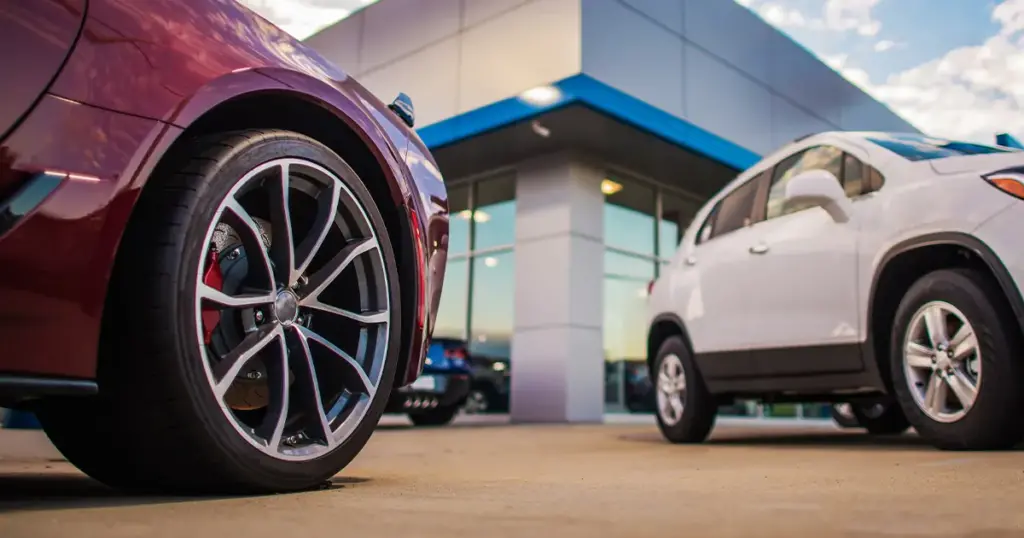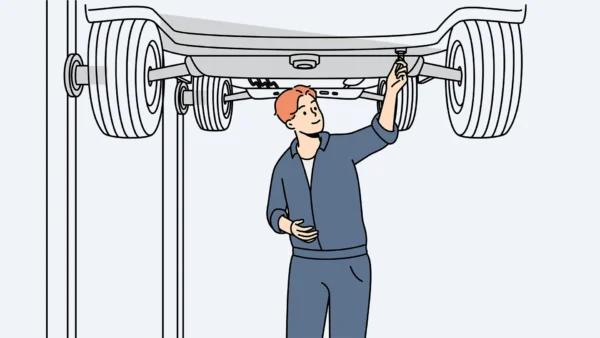The first question you’ll be faced with when purchasing a car is whether to buy used or new. There are benefits to both, and either can be a good choice depending on your situation.
There are also the insurance implications to be considered. Here’s how buying new versus used can affect the cost of your auto insurance.
The pros and cons of buying a new car
Buying a new vehicle will often cost several thousand dollars more than a used car of similar make/model. Upfront, this can be daunting and may put off many prospective new car buyers since they may not have the finances to cover the initial price (although leasing or financing can be a good solution).
That said, new cars come with a range of features, which you can often select and customize at the right dealership. Here’s some pros to buying new:
- Customization and outfitting your new ride to your preferences
- Your new car will be fitted with the latest safety features and tech
- You’ll enjoy better reliability (warranties will limit your maintenance/repair costs)
- Better interest rates than with a used car
Here are some downsides:
- More expensive to purchase upfront
- Vehicle depreciation – new cars lose 20% of their value in the first year and 5-10% every year afterwards
- Can have more expensive insurance costs due to a higher value and increased chance of theft
The pros and cons of buying a used car
Purchasing a used car has its merits as well, and for several Canadian drivers buying used is a “no-brainer” decision. You’d save money on a lot of different fees, but used cars may also come with their own issues.
Here’s some pros to purchasing used:
- They’re less expensive upfront, saving you thousands of dollars simply by choosing a car that’s a few years old.
- They depreciate slower, since depreciation is at its greatest in a car’s first 1-2 years.
- Usually have lower insurance costs, titling fees, and sales taxes.
Buying used may also have its negatives. Here are some:
- You don’t know the car’s history and may have to take it to a mechanic for an inspection before closing a deal.
- You may need to do more searching to find the exact car you want and could even have to compromise on certain elements of your vehicle.
- Maintenance costs will be much higher, even if the car is in good condition.
Why does buying new cost more to insure?

To start, new cars will usually cost more to replace than used ones. The value of your vehicle is a huge factor in what you’d pay for your insurance costs. In a total loss, the value of your car (minus its depreciation) is how much your insurer would need to pay out for your final settlement.
Newer cars also tend to have more advanced technology, which can increase insurance costs by up to 30% in some cases. Newer cars can also be more appealing to thieves as their higher-value components might be more intriguing to sell on the black market.
Comparing insurance costs for new and used vehicles
The following chart compares annual insurance premiums for different makes/models of newly purchased and used vehicles. The same driver profile was used for all quotes. The new cars are all 2023 models, and the used ones are from 2015.
Driver profile was 35-year-old male, from Whitby, married, clean record.
| Make/Model of Car | Annual Cost – 2015 Used Vehicle | Annual Cost – 2023 New Vehicle |
| Honda Civic | $2,834 | $3,677 (+30%) |
| Volkswagen Jetta | $2,667 | $3,049 (+14%) |
| Hyundai Elantra | $2,804 | $3,514 (+25%) |
| Toyota Corolla | $2,999 | $3,352 (+12%) |
| Ford Escape | $2,522 | $3,190 (+26%) |
Note that these figures are not exactly what you’d pay when insuring this make/model of vehicle as premiums will fluctuate based on additional demographics, such as your age and gender, where you live, your driving record, and more.
In the examples above, you can see that insurance can cost as much as 30% more for new vehicles compared to similar used makes/models. That increase varies depending on the characteristics of the vehicle including its value, safety ratings, theft frequency, and more.
Key findings
- The cost to insure the 2023 Honda Civic was 30% more than the one used one from 2015, which was the biggest premium increase between newer and older models.
- The 2023 Ford Escape had the second biggest increase with a price jump of 26%.
- The 2023 Toyota Corolla cost 12% more to insure than the used one from 2015, which was the smallest premium increase between a newer model and an – older one.
Is it better to buy used or new?
While we know that insurance costs generally run higher for new cars versus used ones, that increase is only slight in some cases and is just one part of a much larger picture. Used cars also have their flaws and can eat into your savings with maintenance and repairs costs, especially since they are often past their warranty. Used cars may even be more expensive in terms of gas charges as new cars tend to be more fuel efficient.
As insurance brokers, we’re not inclined to tell you what to do when purchasing a new vehicle – we’re only here to give you the facts. Many people will go “middle of the road” when it comes to purchasing vehicles and will opt for slightly used vehicles that are 2-3 years old with a little bit of warranty. From an insurance standpoint, as well as considering factors like fuel efficiency, maintenance costs, and overall reliability, this option could be an all-around smart choice. Ultimately though, it’s up to you!
Regardless of whether your next car will be bought new or used, we’ll help you find the right insurance coverage at the best price possible. Give us a call for a free quote today.
Looking for car insurance?
Speak with a Mitch Insurance broker today to get a quote on Ontario auto insurance.
Call now
1-800-731-2228








Excellent write-up! The insights shared here are truly eye-opening. Thank you for sharing.